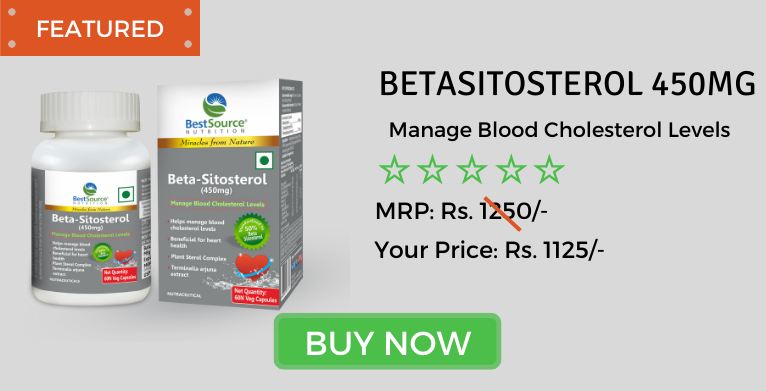
Rising heart disease in Northern India calls for managing lipid profiles through diet, plant sterols, and omega-3s to lower cholesterol and boost heart health.
Heart disease, or cardiovascular diseases (CVD), is no longer just a concern for older adults—it’s quickly becoming a major health issue across all age groups in India, particularly in the northern states like Punjab, Haryana, and Uttar Pradesh. With busy lifestyles, unhealthy diets, and reduced physical activity, these regions are experiencing a troubling rise in CVD cases. In fact, heart disease now accounts for over 28% of deaths in India, according to a study from the Global Burden of Disease, making it the leading cause of mortality.
A study published in the Indian Heart Journal in March 2024 by ICMR-INDIAB reported regional variations in hypercholesterolemia (cholesterol ≥200 mg/dl), ranging from 4.6% to 50.3%, with higher prevalence in Northern states, as well as Kerala, Goa, and West Bengal. It’s not just about genetics, though. Our fast-paced, stress-filled lives and poor eating habits are significantly fueling this rise. As heart disease numbers continue to climb, taking control of your heart health has never been more critical.
Lipid Profile: How It Affects Your Heart
Has your doctor ever mentioned your lipid profile? It’s basically a snapshot of the fats in your blood, including cholesterol and triglycerides, and it’s a crucial indicator of your heart health. Here’s a quick breakdown:
- Total cholesterol: The overall cholesterol in your blood.
- LDL (Low-Density Lipoprotein): Also known as “bad” cholesterol, this clogs up your arteries.
- HDL (High-Density Lipoprotein): The “good” cholesterol that helps clear out the bad.
- Triglycerides: Another form of fat in your blood, and high levels aren’t great for heart health.
If your LDL or triglyceride levels are too high, it can lead to plaque buildup in your arteries, restricting blood flow and increasing your risk of heart attack or stroke. That’s why keeping your cholesterol in check is vital for maintaining a healthy heart.
How Your Diet Can Help Manage Lipid Levels
Managing your cholesterol isn’t just about medication—your diet plays a massive role. Foods rich in saturated fats (like butter and red meat) and trans fats (often found in processed snacks) can wreak havoc on your heart health. But the good news? Adding more plant-based foods and heart-healthy fats can make a significant difference.
One key nutrient to focus on is plant sterols. Found in certain plant-based foods, plant sterols help reduce LDL cholesterol by limiting how much cholesterol your body absorbs. A diet rich in fruits, veggies, whole grains, and plant sterols can help keep your cholesterol levels in a healthier range.
How Plant Sterols Help Lower Cholesterol
So, how exactly do plant sterols work? They look very similar to cholesterol at the molecular level, allowing them to compete with dietary cholesterol in your digestive system. By "tricking" your body, plant sterols reduce the amount of cholesterol that gets absorbed into your bloodstream, leading to lower LDL levels. It’s a natural way to manage cholesterol and manage risk of heart disease.
Best Sources of Plant Sterols and the Role of Supplements
While plant sterols are naturally found in foods like nuts, seeds, and avocados, it’s hard to get enough of them through diet alone. This is where supplements, like BestSource Nutrition’s Beta-Sitosterol, come in. These supplements make it easier to reach the recommended 1.5 to 2 grams of plant sterols per day, which can effectively lower your LDL cholesterol to healthy levels. Studies have shown that this dosage can reduce LDL levels by up to 10%, which is a significant boost for heart health. You can find BestSource Beta-Sitosterol supplements online at BestSource Nutrition's official website —they're a vegetarian-friendly way to support heart health.
Don't Forget Omega-3s for Heart Health
While we’re on the topic of heart health, let’s not forget about omega-3 fatty acids. These healthy fats, found in foods like fish oil and flaxseeds, have been proven to reduce triglycerides, lower blood pressure, and help prevent heart disease. Combining omega-3s with plant sterols is a winning formula for heart health. If you’re not eating fish regularly, you can try BestSource Nutrition’s Omega-3 Fish Oil supplements to ensure you're getting enough of these heart-healthy fats. Incorporating these natural nutrients into your daily routine, along with a well-balanced diet, can help keep your cholesterol in check and make it easier to lead a heart-healthy lifestyle.











